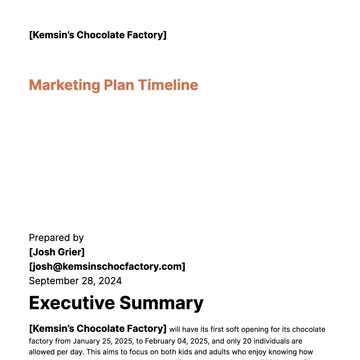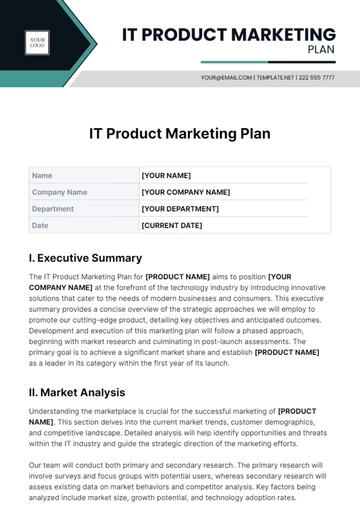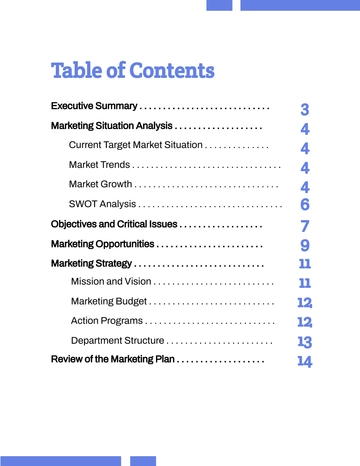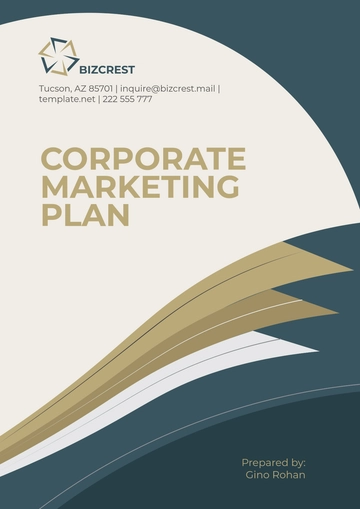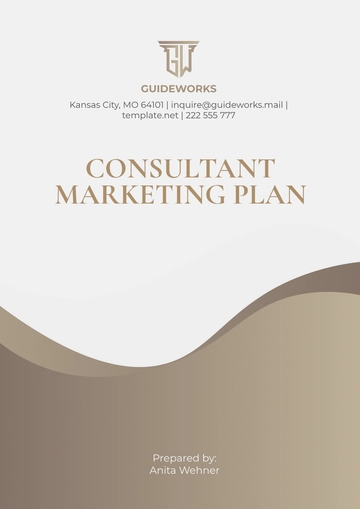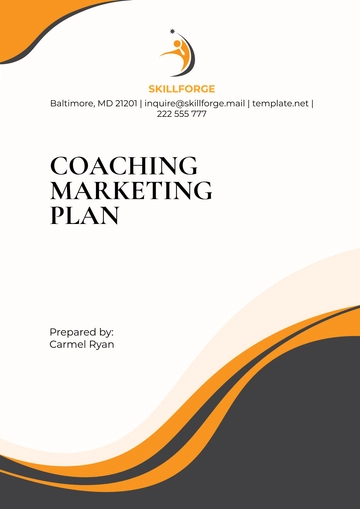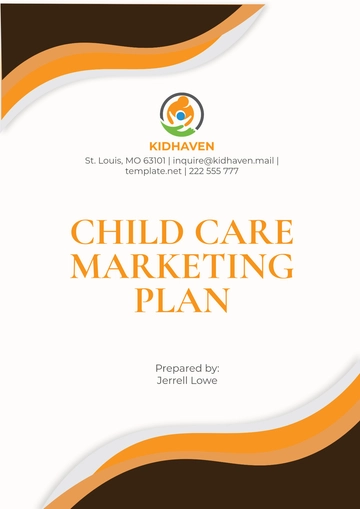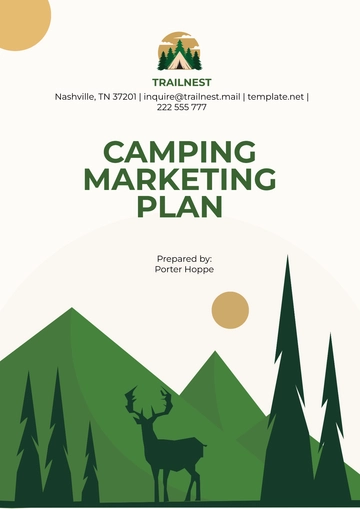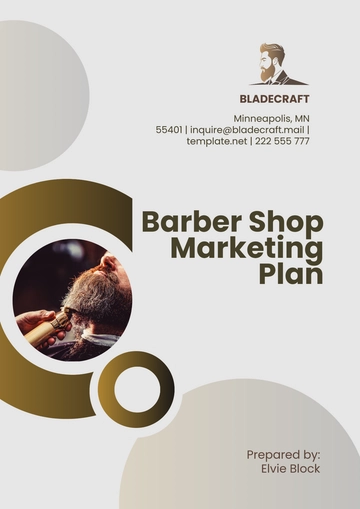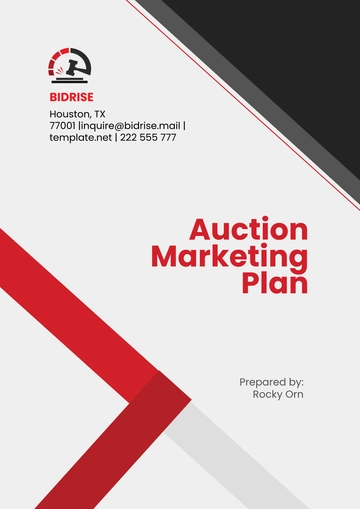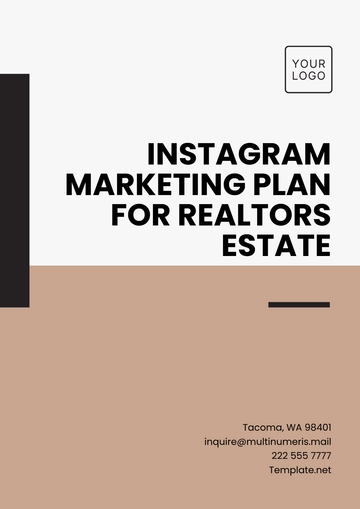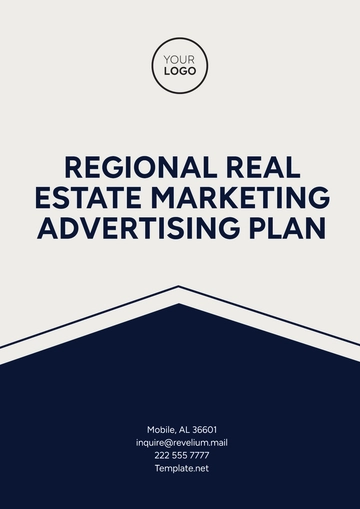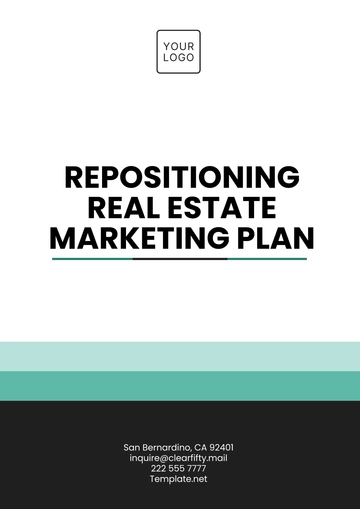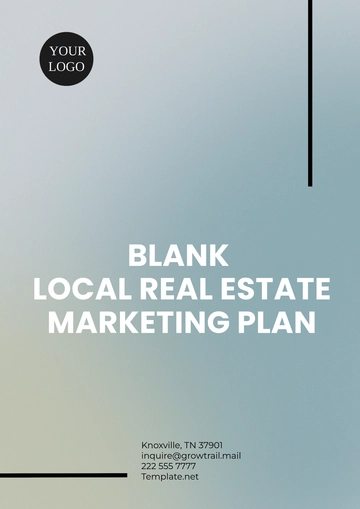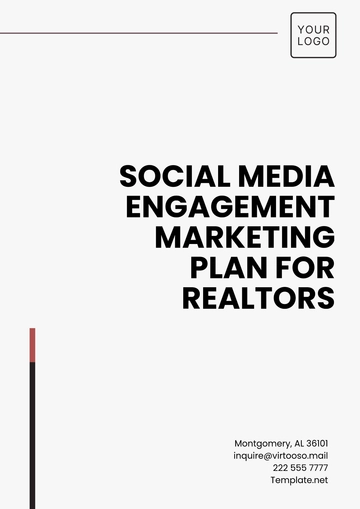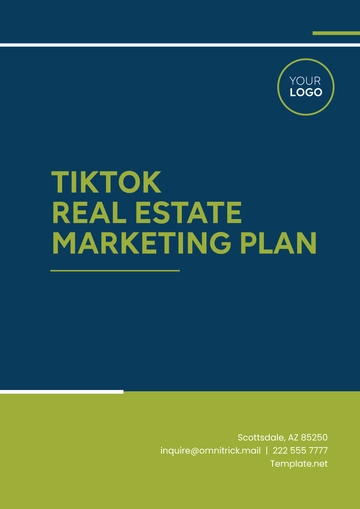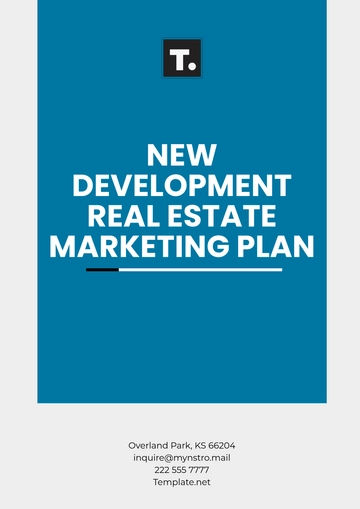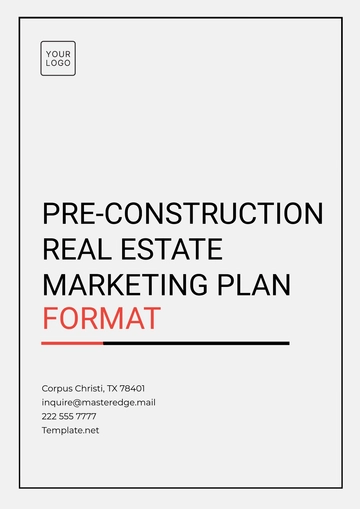Free Simple Real Estate Promotion Marketing Plan
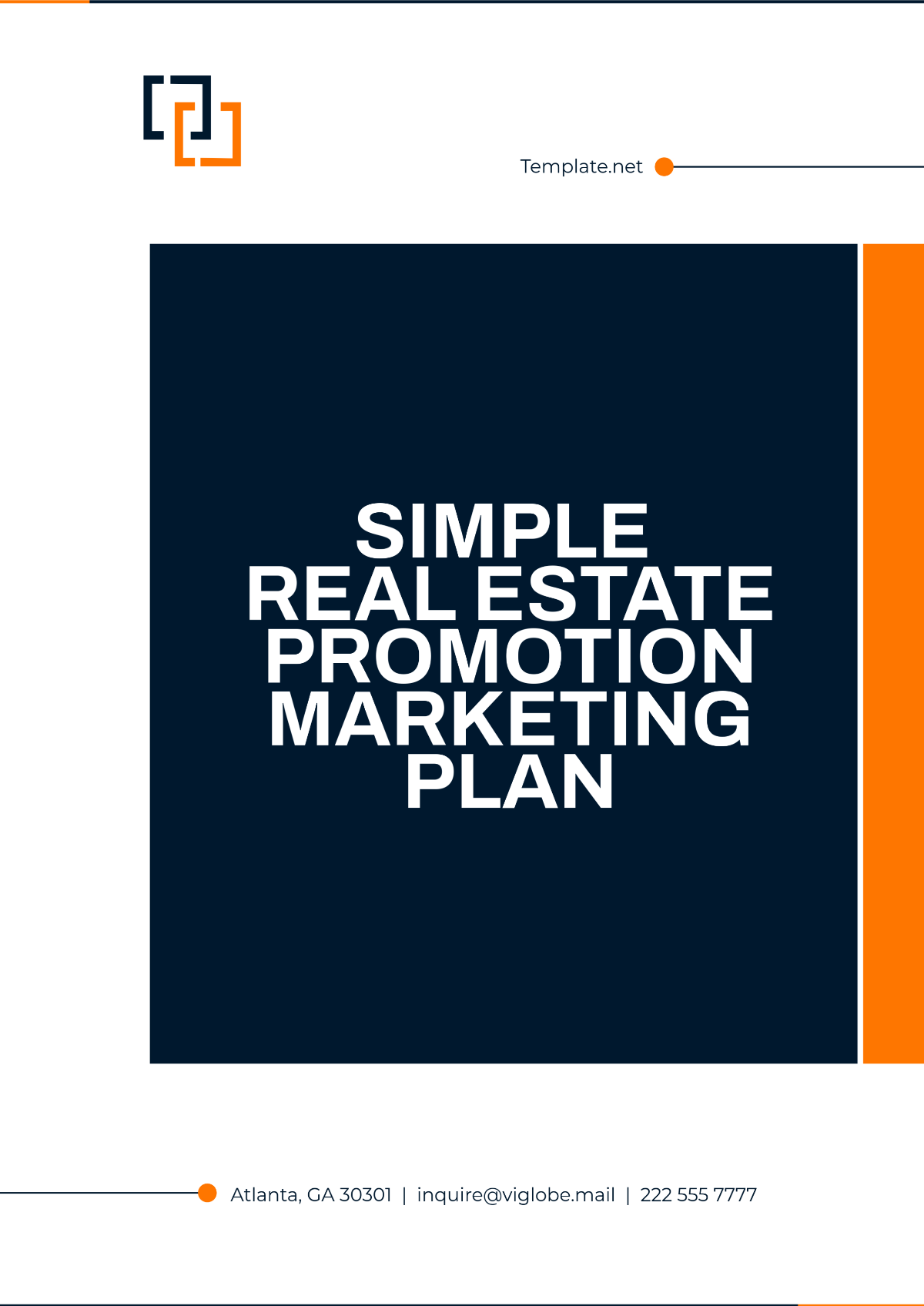
Prepared by:
[YOUR NAME]
[YOUR COMPANY NAME]
Introduction
This marketing plan is designed to strategically promote [YOUR COMPANY NAME], establish a prominent market presence, and foster sustained customer engagement. Our approach is focused on implementing targeted marketing strategies that align with the company's goals of driving growth, generating high-quality leads, and cultivating long-term relationships with clients. This comprehensive plan outlines the key objectives, strategic initiatives, and actions that will guide our marketing efforts and position [YOUR COMPANY NAME] for continued success in an evolving market.
Marketing Objectives
We aim to achieve the following:
Increase Brand Awareness: Boost awareness by 30% over the next year through both online and local campaigns.
Lead Generation: Generate 20% more leads than last year through effective digital strategies.
Customer Engagement: Improve engagement via targeted digital content and personalized communication.
Repeat Sales: Increase repeat business by 15% by fostering long-term client relationships.
Target Audience
Our target audience consists of:
Age Range: 25-55 years
Income: $50,000+
Location: Urban and suburban areas
Lifestyle: Tech-savvy, value-driven individuals seeking quality homes
Market Analysis
The real estate market is currently expanding, with rising demand for affordable and sustainable housing options. People are increasingly focused on the value, location, and community amenities provided by real estate offerings, making it an ideal time for [YOUR COMPANY NAME] to meet these needs.
Competitor Landscape
Competitor | Strengths | Weaknesses |
|---|---|---|
Realty One | Strong online presence, established brand | Limited personalized services |
Home Plus | Wide property listings, competitive pricing | Weak digital marketing |
Urban Living | Local market expertise | Declining customer base |
Marketing Strategies
Digital Marketing
We will focus on the following digital strategies to connect with our audience:
SEO and Website Optimization: Enhance the website’s search engine ranking to drive more organic traffic.
Content Creation: Regularly publish engaging blog posts, property videos, and listings to attract and retain visitors.
Social Media Engagement: Build a strong social media presence on platforms like Instagram and Facebook to connect with potential clients.
Email Campaigns: Implement email marketing campaigns that provide property updates, tips, and market insights.
Traditional Marketing
In addition to digital marketing, we will utilize traditional methods:
Open Houses and Events: Host open houses and real estate workshops to showcase properties and build community engagement.
Direct Mail: Send postcards and flyers to targeted neighborhoods with information on new listings and special promotions.
Local Partnerships: Partner with local businesses to increase visibility through co-branded promotions and community events.
Public Relations
To enhance our reputation and credibility, we will engage in the following public relations efforts:
Press Releases: Share company news, key achievements, and market updates through local media.
Media Outreach: Engage with local media outlets for interviews and expert commentary on real estate trends.
Community Sponsorships: Sponsor local events and initiatives to foster goodwill and brand recognition.
Implementation Timeline
The activities will be spread across the following phases:
Phase | Activities | Timeline |
|---|---|---|
Phase 1 | Market research, website updates | Q1 |
Phase 2 | Launch digital campaigns, create content | Q2 |
Phase 3 | Implement traditional marketing, host events | Q3 |
Phase 4 | Review performance, adjust strategy | Q4 |
Budget Allocation
Category | Percentage of Total Budget |
|---|---|
Digital Marketing | 40% |
Traditional Marketing | 30% |
Public Relations | 20% |
Miscellaneous | 10% |
Key Performance Indicators (KPIs)
We will track the following metrics to measure success:
Website Traffic: Number of visitors and their engagement with the website.
Lead Generation: Number of leads generated and conversions.
Social Media Engagement: Interaction rate on platforms like Facebook and Instagram.
Sales Performance: Number of properties sold and repeat clients.
Customer Retention: Percentage of clients returning for future business.
Conclusion
This marketing plan will help [YOUR COMPANY NAME] establish a strong presence in the market by leveraging both digital and traditional strategies. Our focus will be on increasing brand awareness, generating leads, and nurturing long-term relationships with our clients. Regular evaluations and flexibility will ensure we meet our marketing objectives and adapt to changing market conditions.
- 100% Customizable, free editor
- Access 1 Million+ Templates, photo’s & graphics
- Download or share as a template
- Click and replace photos, graphics, text, backgrounds
- Resize, crop, AI write & more
- Access advanced editor
The Simple Real Estate Promotion Marketing Plan Template from Template.net is a fully editable and customizable tool for real estate professionals. Easily tailor the plan to suit your promotional needs, and refine it with our Ai Editor Tool. Ideal for crafting effective marketing strategies to promote properties and engage potential clients with ease.

